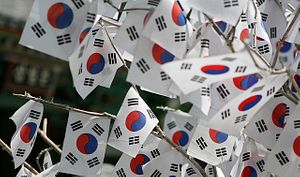One of the latest polls in South Korea shows 60 percent in opposition of Cho Kuk’s appointment as justice minister. That’s a sharp increase compared to last week, when opposition stood at about 40 percent. What has changed?
Cho, the former senior secretary to the president for civil affairs under Moon Jae-in’s Cabinet, has been embroiled in numerous scandals and allegations over the past few weeks. None of them was critical enough to stop Cho from pursuing a post as the country’s justice minister. However, the atmosphere began to change as a series of allegations involving his daughter emerged.
Cho’s daughter is currently suspected of having received preferential treatment in the process of entering one of the most prestigious universities in Seoul with a controversial academic paper.
She was listed as a primary author of a pathology paper published in a renowned medical journal after a two-week internship at a medical science institute under Dankook University in 2008, when she was still a high school student. It has been speculated that the paper may have helped her obtain a place at Korea University in 2010.
She also received a total of 12 million South Korean won ($9,900) in scholarships over six semesters from 2016 through 2018 at the Pusan National University’s Graduate School of Medicine, and many speculate that she also received preferential treatment from the school thanks to her father’s status.
People are increasingly angry over the allegations relating to Cho’s daughter. More broadly, the opposition to Cho’s nomination is an indication that many are disappointed in the way the current government, in which Cho has played a significant role, has lived up to its promises of bringing justice, fairness, and equality to Korean society.
According to a survey by Hankook Research in March, 88 percent of respondents said the law is not being carried out fairly in South Korea, while 80 percent said South Korea is becoming an increasingly difficult country to succeed in. In addition, 79 percent of respondents said that the South is not a society where people can climb up socioeconomic ladders even if they try hard.
Also, 72 percent of respondents said that, in their assessment, social competition is not being conducted fairly, while 64 percent said many do not face punishment in South Korea even though they engage in unfair practices.
These views were widely held, without significant differences among generations, regions, and classes. In other words, many Koreans believe that there are rampant privileges and unfair practices in Korean society that individuals cannot overcome.
Despite growing criticism, Cho recently expressed his determination to undergo a confirmation hearing to become justice minister and help carry out the Moon administration’s judicial reforms – even while apologizing to the public.
The ruling Democratic Party also plans to arrange a separate hearing for Cho to be able to directly speak to the public, in a move to support him.
The public, however, doesn’t seem to be convinced, Moon’s approving rating fell to 46.2 percent between August 19 and 23, a 2.7 percent drop from the previous week, according to the latest poll conducted by Realmeter. About 50 percent of respondents expressed negative views of the president, marking the highest level of dissatisfaction since Moon’s inauguration.
Approving rates for Moon’s Democratic Party also decreased to 38.3 percent, a 2.3 percent drop over the same period.
What’s needed for Cho and the ruling party now is to elucidate the various allegations against Cho and reassure the public that there were no unfair or illegal practices seeking personal gain for Cho himself and his family members. So far, he has not been able to do this.
The political parties have agreed to convene a two-day confirmation hearing for Cho starting on September 2. All eyes will be on the hearing.































